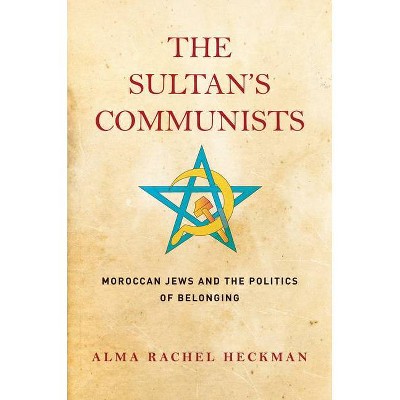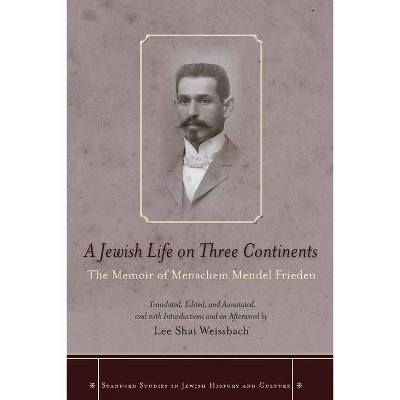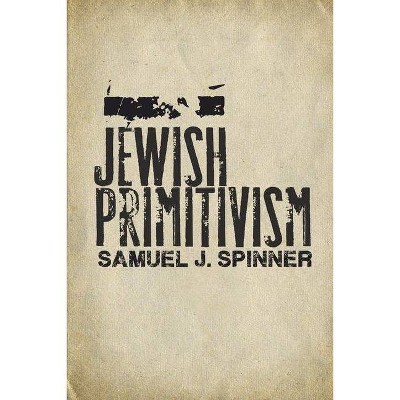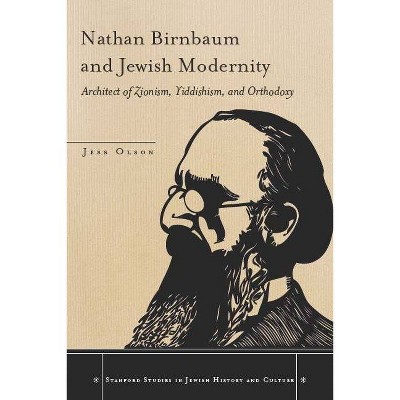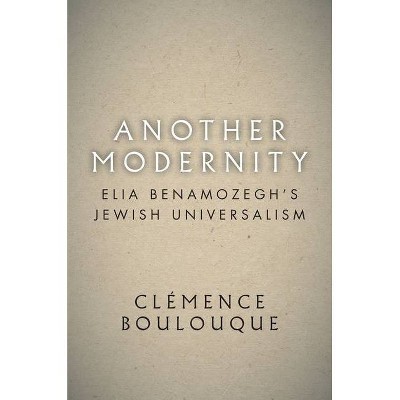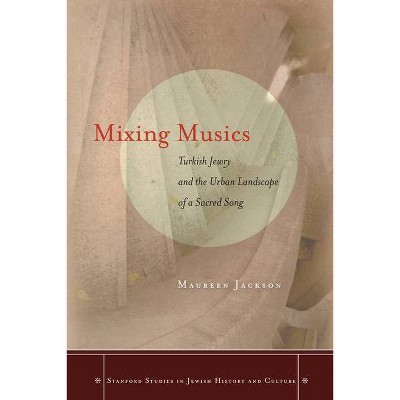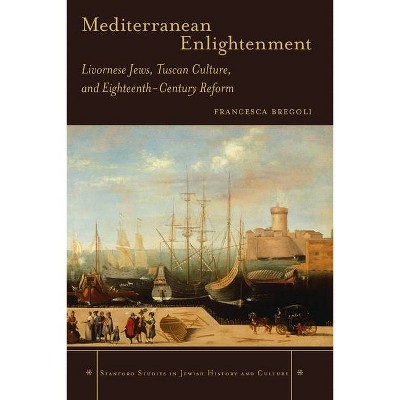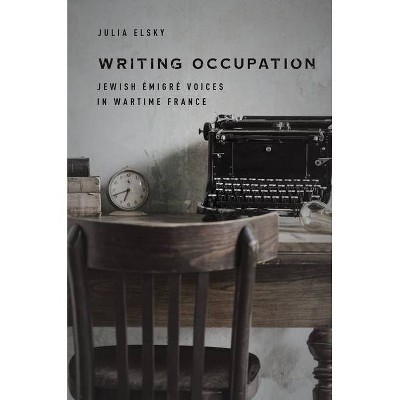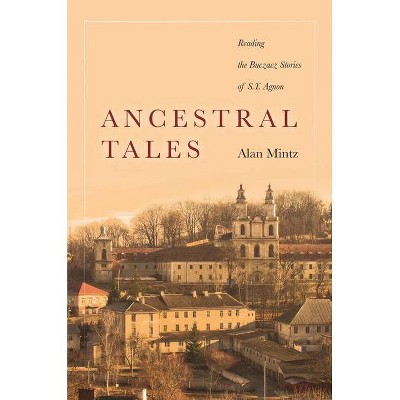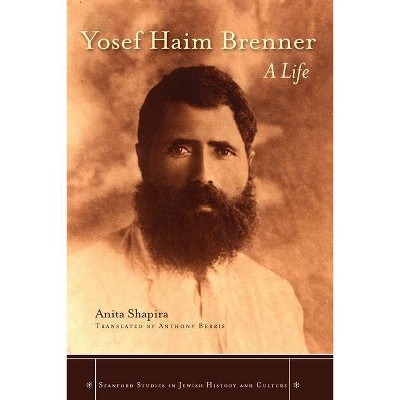To Tell Their Children - (Stanford Studies in Jewish History and Culture) by Rachel L Greenblatt (Hardcover)
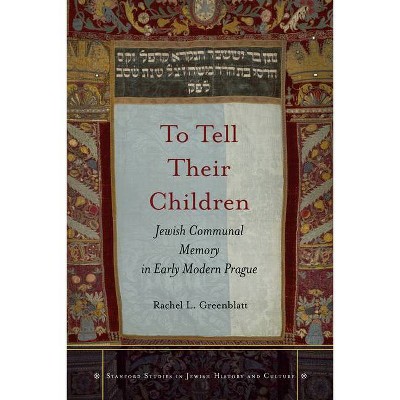
Similar Products
Products of same category from the store
AllProduct info
<p/><br></br><p><b> About the Book </b></p></br></br>This book brings together a uniquely wide variety of sources, including historical chronicles, gravestones, ritual objects, liturgy, popular songs and more, to sketch a portrait of the ways in which Jews of this storied, populous, understudied community preserved their own local history and sought to transmit it to future generations.<p/><br></br><p><b> Book Synopsis </b></p></br></br>This book brings together a uniquely wide variety of sources, including historical chronicles, gravestones, ritual objects, liturgy, popular songs and more, to sketch a portrait of the ways in which Jews of this storied, populous, understudied community preserved their own local history and sought to transmit it to future generations.<p/><br></br><p><b> Review Quotes </b></p></br></br><br>... the book tells a fascinating story that derives its power and coherence from the way the author combines and rearranges her sources across each chapter.--Martina Niedhammer "<i>American Historical Review</i>"<br><br><i>To Tell Their Children</i> makes the Jewish story of Prague accessible for an Anglophone audience through its comprehensive compilation of dispersed secondary literature primarily from Czech and German scholarship, and the valuable publication of numerous extracts from the still little known Prague sources. However, this book is much more than a synthesis. It weaves together the multiple memories from Prague's early modern Jewish community in a way that illuminates the connections between individual and communal, and biblical and historical pasts. Moreover, it successfully brings the Jewish story into contact with stories of early modern Prague told from outside the boundaries of the Jewish Quarter. Greenblatt's work is a rich contribution to the study of early modern Jewish memory and shows how Prague is an ideal case study for reintegrating Jewish and Christian experiences of the early modern period in the Habsburg lands.--Suzanna Ivanic "<i>HABSBURG, H-Net Reviews</i>"<br><br><i>To Tell Their Children</i> weaves a fascinating tale of the interplay between individual and communal memory and the topographies of Jewish space. Prague was home to the largest and most culturally creative Ashkenazic community in early modern Central Europe. Beautifully written and richly detailed, Greenblatt's creative approach provides a wonderful entry to the world of Prague Jews and the means by which they perpetuated their historical memories.--Elisheva Carlebach "Columbia University"<br><br>In <i>To Tell Their Children: Jewish Communal Memory in Early Modern Prague</i>, Rachel L. Greenblatt looks at the war in an entirely new way, as she demonstrates that the Prague Jewish community was particularly focused on telling its own history in relation to the events of the Thirty Years War . . . Her book is handsomely illustrated with excellent black-and-white reproductions of title pages, gravestones and Hebrew texts. Recent scholarship has taken the study of religion in Central and Eastern Europe to new levels of sophistication, and Greenblatt's fascinating study may be read with great interest . . . <i>To Tell Their Children</i> offers unusual insights into how Jewish communal memory related to the events of Habsburg history and the Thirty Years War, while analyzing the dynamics of Jewish historical remembrance.--Larry Wolff "<i>Times Literary Supplement</i>"<br><br>Rachel Greenblatt's gracefully written, carefully researched, and cogently argued monograph on Jewish communal memory in sixteenth- and seventeenth-century Prague transforms the way we think about Jewish historical writing in early modern Central Europe . . . The Jews of early modern Prague did not write history in a Rankean sense, but as Greenblatt convincingly argues in her lucid and original book, Prague's Jewish men and women recorded local events with posterity in mind, in an effort to perpetuate the memories of their loved ones and to commemorate their values and virtues.--Michael L. Miller "<i>Austrian History Yearbook</i>"<br><br>This book addresses the intertwined yet competing concepts of <i>history</i> and <i>memory</i> and explores questions of how Jews recorded and remembered the past. Rachel L. Greenblatt offers a corrective to earlier assumption that premodern Jews were not concerned with recording history . . . <i>To Tell Their Children</i> is an important scholarly contribution. It raises important methodological questions about historical sources--what is created and preserved and, thus, what is remembered and forgotten.--Magda Teter "<i>Slavic Review</i>"<br><p/><br></br><p><b> About the Author </b></p></br></br>Rachel L. Greenblatt is Associate Professor of Near Eastern Languages and Civilizations at Harvard University.
Price History
Price Archive shows prices from various stores, lets you see history and find the cheapest. There is no actual sale on the website. For all support, inquiry and suggestion messagescommunication@pricearchive.us
